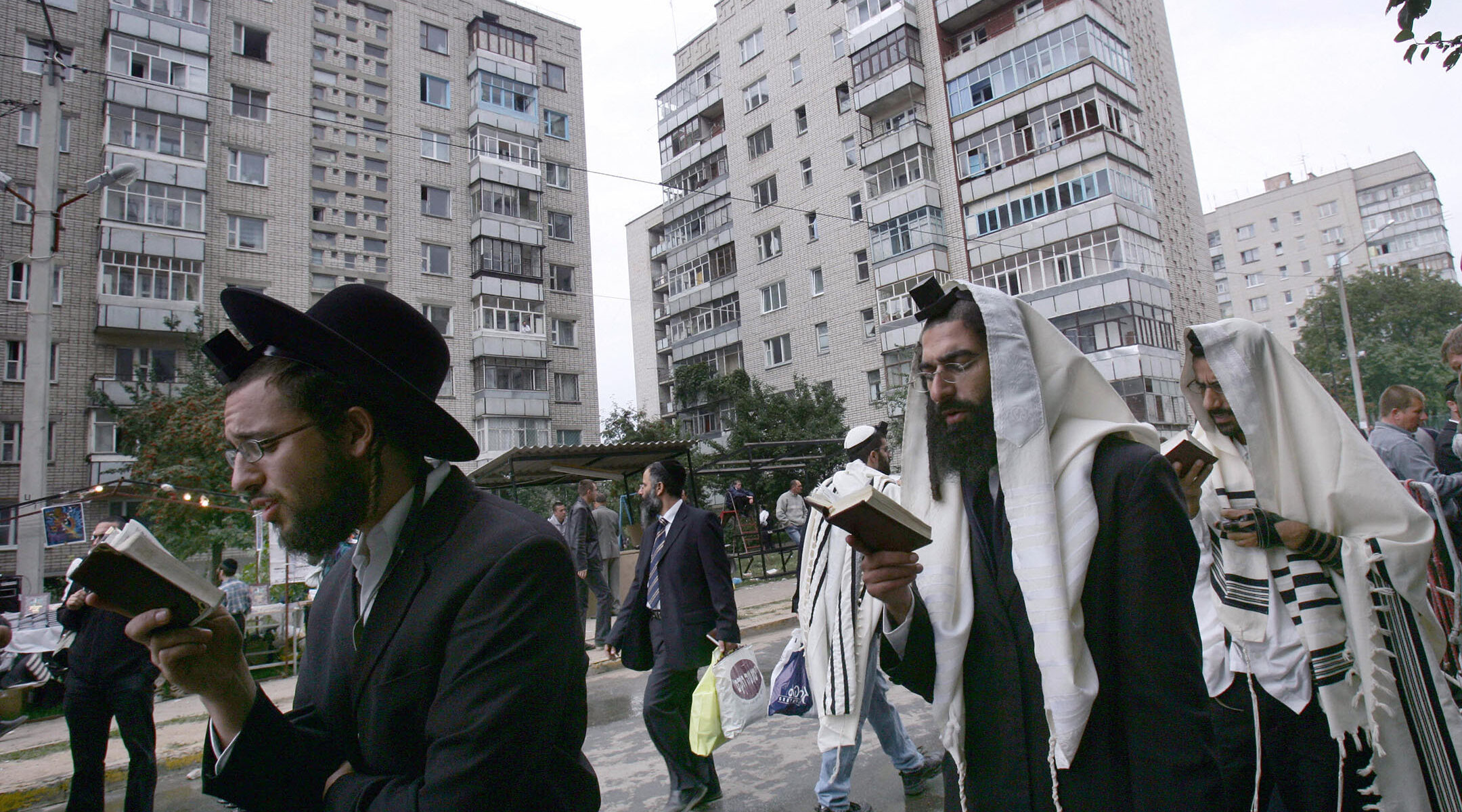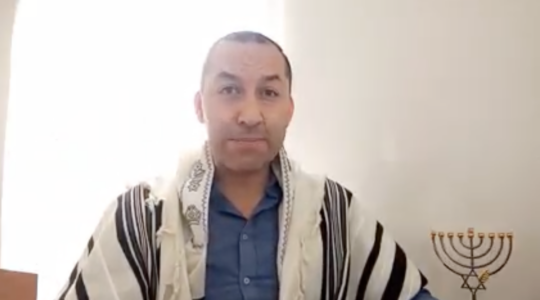(JTA) — Before deciding to stay permanently, Chaim Chazin would visit the small city of Uman, Ukraine, every year around Rosh Hashanah, the Jewish new year.
For Chazin, a religiously observant music producer from Israel, the brief annual visits were energizing spiritual experiences away from money troubles back home.
“There’s a feeling of holiness in Uman, of spirituality and of a return to the sources,” said Chazin, a father of seven. “It gives you the strength and inspiration to go on.”
Like tens of thousands of other observant Jews since the fall of communism in Europe, Chazin, 43, would come to this small city ahead of Rosh Hashanah because it’s the burial place of Rabbi Nachman, an 18th-century luminary who founded the Breslov Hasidic movement.
Prior to Ukraine’s border shutdown due to the coronavirus, about 30,000 Jewish pilgrims, mostly from Israel, would come each year for the holiday. Many thousands more visit year round.
Chazin, his wife Liat and their children are among 70 families who have taken the Uman experience to a whole other level: They have moved there.
For most of the year, the city of 80,000 is sleepy and quiet. For Chazin, beyond the spiritual dimension of the place, he says “it’s easier to make a living here.”
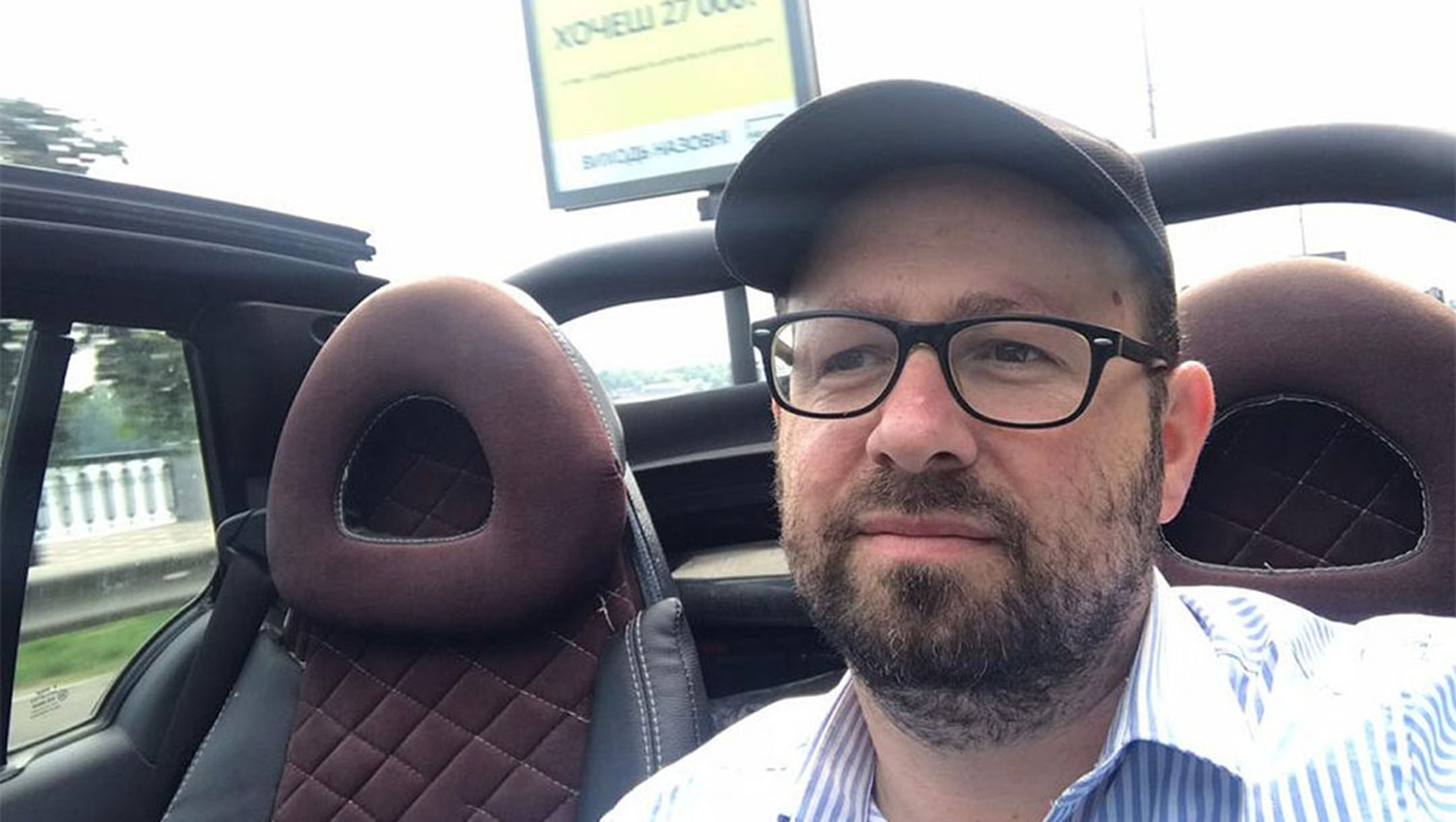
Chaim Chazin drives through Uman, Aug. 20, 2020. (Courtesy of Chazin)
“In Israel, I was always busy with bureaucracy, overdue payments, repossession notices, negotiating with the tax authorities. Ukraine is much easier in this regard. This is not a bureaucratic country,” he said.
Like many of the 200-odd Israeli observant Jews who live in Uman year-round, Chazin makes his living catering to the stream of Rosh Hashanah pilgrims. He owns real estate that he rents out to them and also has a hotel, in addition to other businesses.
The pilgrims are not big spenders. They typically part with only $50-$100 a day per person during their stays of four to seven days. But most of that money goes to relatively few service providers who either belong to, or are in business with, the permanent Jewish community of Uman. Whereas most pilgrims come for Rosh Hashanah, the thousands who visit year round provide a dependable source of income for the local Jews.
In a country where the average annual salary is about $6,000, this income, meager in Western terms, is enough for members of Uman’s permanent Jewish community to live comfortably and afford certain communal amenities enjoyed by few other Ukrainian Jewish communities of their size. They have a permanent rabbi from Israel, a mohel who performs circumcisions, and a kosher butcher. There’s a small elementary school for boys, another school for girls and even a Jewish kindergarten.
In terms of food, Uman’s Jews have an unusual amount of choice, thanks to the 10 or so kosher restaurants. Their existence means local Jews can order anything from Italian to Yemenite dishes. The community also has a grocery store with kosher meat and dairy products.
The pilgrimage is so important to some followers of the Breslov sect that about 1,500 of them rushed in to beat the border closure, which took effect on Aug. 29, and which some believe was imposed on that date to prevent the pilgrimage. Israeli and Ukrainian health officials have urged would-be pilgrims to stay away from Uman this year, warning it could become the epicenter for a new wave of cases.
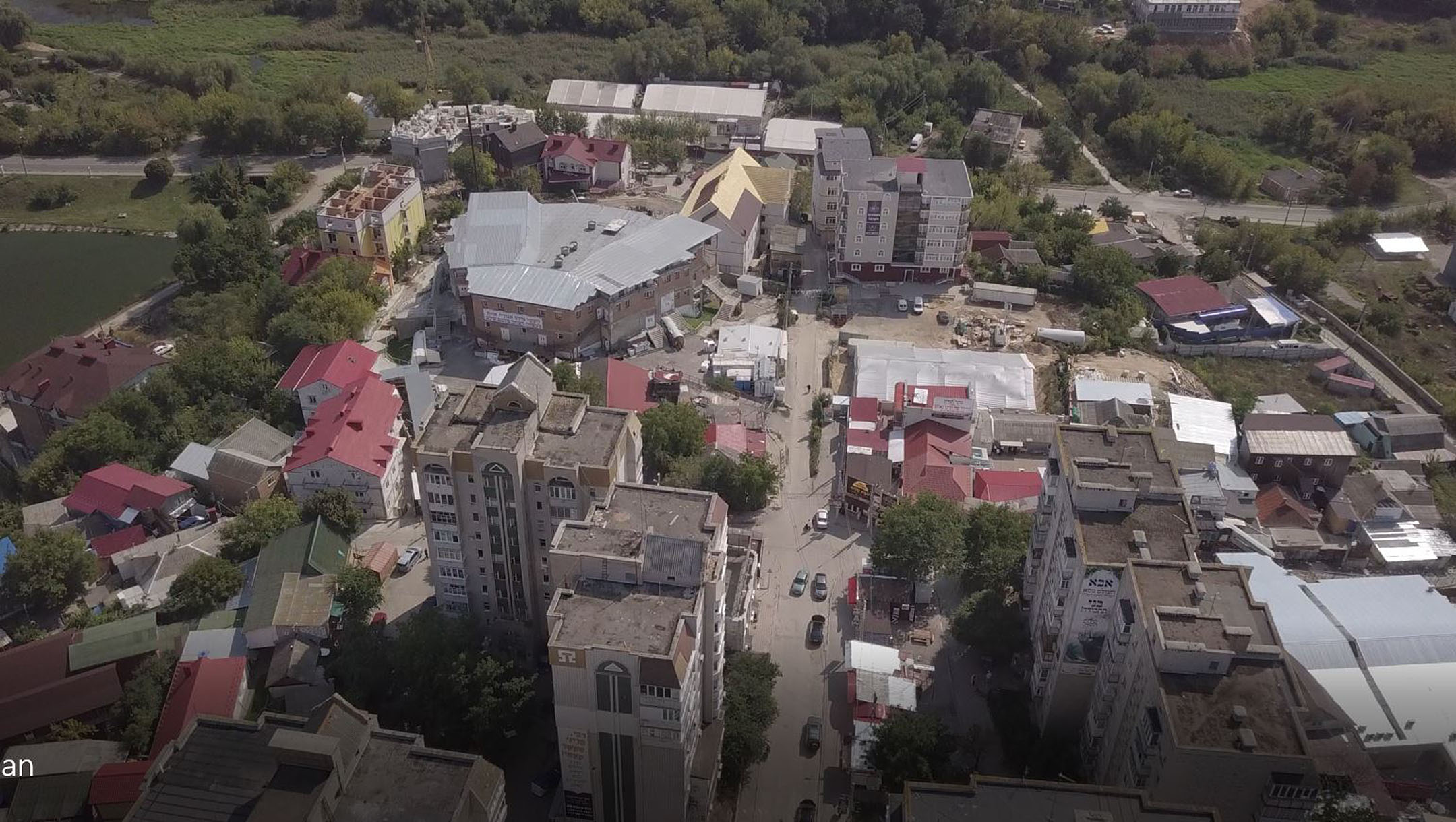
A bird’s eye view of Pushikna Street in Uman, Sept. 8, 2017. (Cnaan Liphshiz)
The festival, as some call it, isn’t only Hasidic Jews — the group of festival-goers has included more secular Jews each year, some looking to party. Adding to the mix, leaders of the Breslov movement emphasize euphoria and joy rather than the intellectualism of other Orthodox Jewish streams. The result is, in the eyes of some observers, an enormous week-long Jewish party, complete with drugs, unsanitary accommodations and trash strewn in the streets.
Friction and an undercurrent of anti-Semitism has shadowed the presence of the many visibly Hasidic pilgrims in Uman for several years. Protests against the pilgrimage are not uncommon, nor are petitions and op-eds in the media. Some, including activists and supporters of the far-right Svoboda party, oppose it on racist grounds; others oppose it for practical reasons, saying it’s an unwelcome disturbance.
In some cases, the tensions play out in violent assaults. Brawls often break out between Jews and locals. Muggings are generally rare in Ukraine but occur regularly in Uman, where each year several pilgrims are violently relieved of their wallets, cell phones and other possessions. One such assault involving a robbery happened last week outside a local supermarket.
Several acts of anti-Semitic vandalism have occurred at one of the city’s several synagogues. In what was widely seen as a provocation, locals erected a large cross near a lake where pilgrims take ritual baths. In response, Jewish visitors vandalized it.
Rabbi Ya’akov Djan, a 46-year-old father of seven, took the community’s main rabbinical post about five years ago, moving to Uman with his wife and seven children. His family moved back to Israel in 2018 because one of his daughters needed special education.
“There are amenities, thank God, but life here is not easy,” Djan told the Jewish Telegraphic Agency. “We are not wanted here. There’s a lot of anti-Semitism, and lately because of the coronavirus, hospitals here are refusing to treat us. I’m worried about this.”
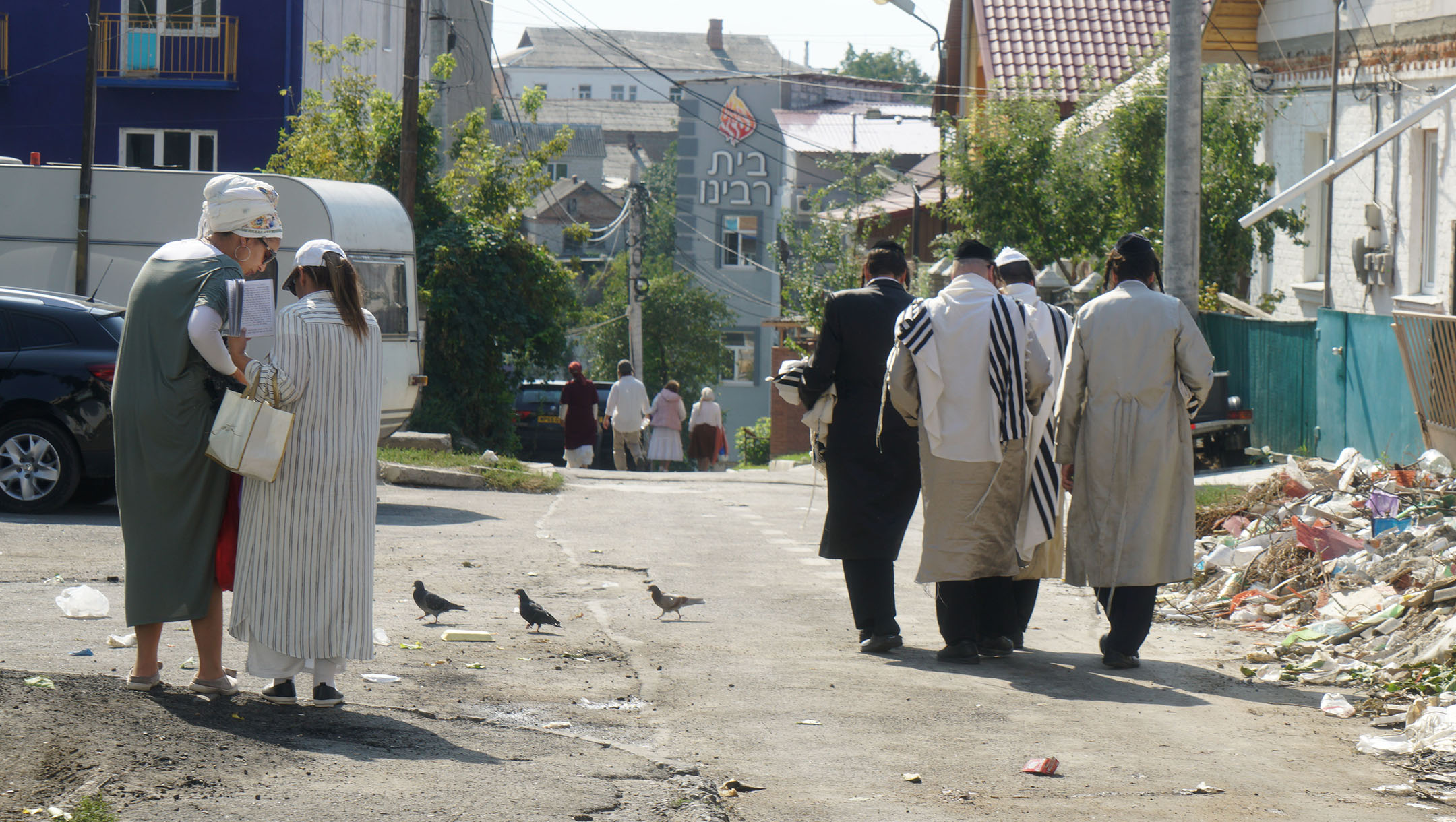
Jews walk down an alley leading to Pushkina Street in Uman, Sept. 8, 2017. (Cnaan Liphshiz)
The involvement of the mafia and nepotism around the Jewish businesses of Uman — and the pilgrims’ at times rowdy behavior — does little to assuage the critics’ concerns.
Some hotels in Uman refuse to rent rooms to Jewish pilgrims, who have earned a bad reputation thanks to some who have started barbecue fires inside rented rooms, thrown trash out of windows or engaged in other forms of inconsiderate behavior.
But Chazin says the permanent Jewish community peacefully coexists with the rest of the city outside of the pilgrimage days. He added that tourist misbehavior used to be more common, but “is mostly a thing of the past, thanks to educational and outreach work” by spiritual leaders and local Jews.
One local, Shimon Buskila, told JTA in 2017 that some of the friction is “connected to misbehavior, abuse and violence by a certain fringe within the pilgrim community. Unfortunately, their actions can eclipse a record of coexistence which is mostly very positive.”
Chazin has a Ukrainian passport thanks to his parents, who were born there and immigrated to Israel decades ago. But most of Uman’s Jews have resident visas, which Ukraine gives anyone who can demonstrate they’ve made an investment of more than $100,000 in Ukrainian real estate or a business venture. A temporary staying permit can be obtained for much less.
Last month, Uman Mayor Oleksander Tsebriy complained in a filmed message on Facebook that Israelis are buying residence permits from corrupt immigration officials for $500, calling this a “form of fraud and manipulation that must stop.”
Tsebriy, a 46-year-old former car dealer who was elected to his post in 2015, is an outspoken critic of the pilgrimage, which he has placed at the center of his campaign for a second term in next month’s municipal elections. Amid fears that the pilgrims would be a health risk during the coronavirus pandemic, Tsebriy last month camped out outside the Kyiv office of Ukrainian President Volodymyr Zelensky, who is Jewish, demanding he ban the event.
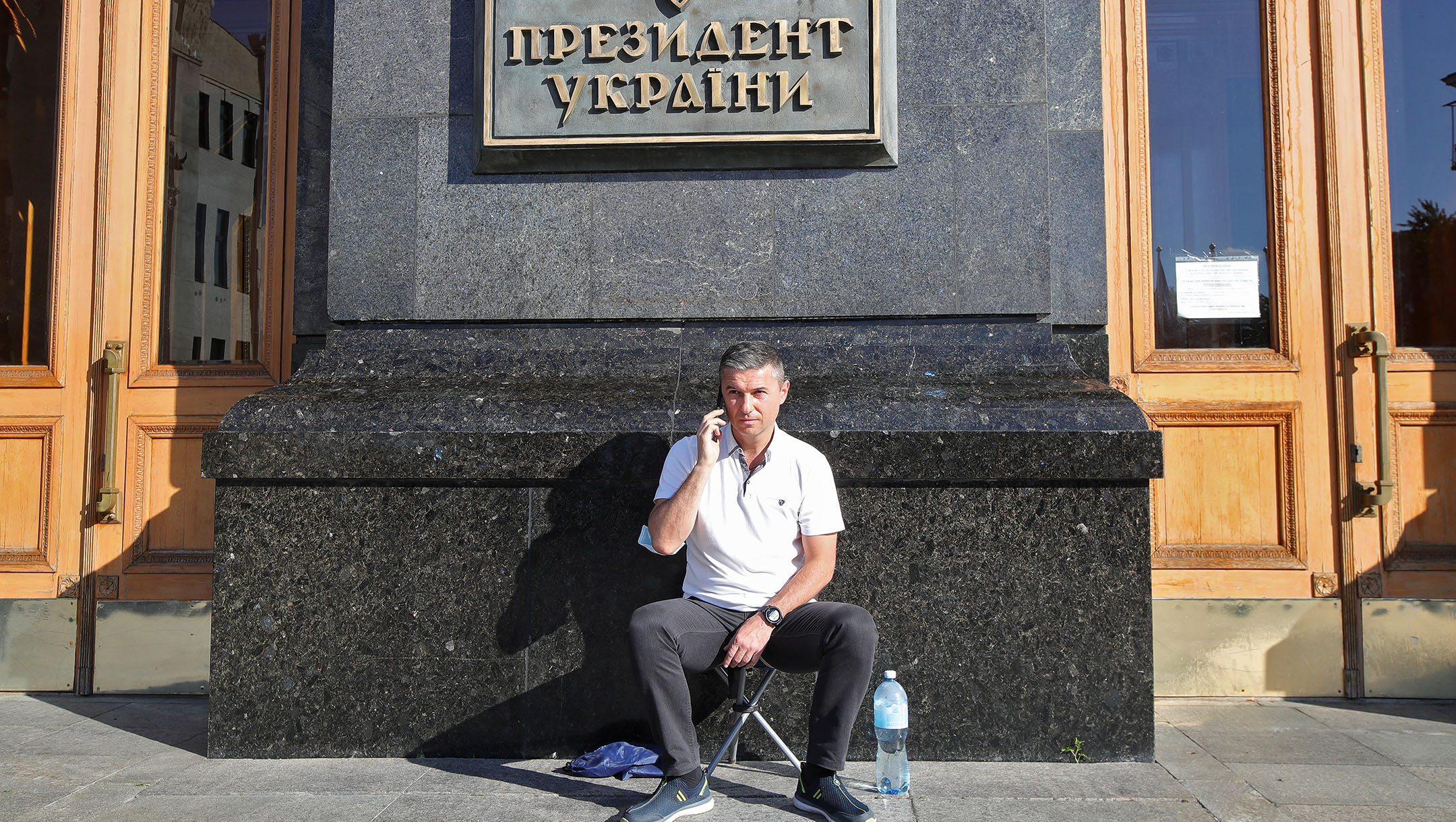
Oleksandr Tsebriy, the mayor of Uman, speaks on the phone outside the Cabinet of Ministers of Ukraine in Kyiv, Aug. 17, 2020. (Pavlo Bahmut/ Ukrinform/Barcroft Media via Getty Images)
A poll he conducted showed that “94% of Uman’s residents are against the traditional pilgrimage of Rosh Hashanah, though they have nothing against the pilgrims themselves,” Tsebriy told reporters outside Zelensky’s office.
According to his calculations, he said, the city’s annual revenue from the pilgrimage is only $270,000. Cleanup costs alone ate up more than a third of that income, in addition to extra water and maintenance costs.
The pilgrims aren’t the only tourists who come to Uman. Hundreds of thousands of people per year flock to Uman’s Sofiyivka Park, a 450-acre botanical garden that has been a symbol of creative arboreal design since it opened in the 19th century.
Chazin’s family are regulars at Sofiyivka, and on school vacations his wife, Liat, regularly takes the children to the beach in Odessa, a bustling metropolis with a vibrant Jewish scene that’s a three-hour drive away.
“In some important ways, the Uman community lives more comfortably than many other larger Jewish communities in Ukraine,” Chazin said.
JTA has documented Jewish history in real-time for over a century. Keep our journalism strong by joining us in supporting independent, award-winning reporting.
